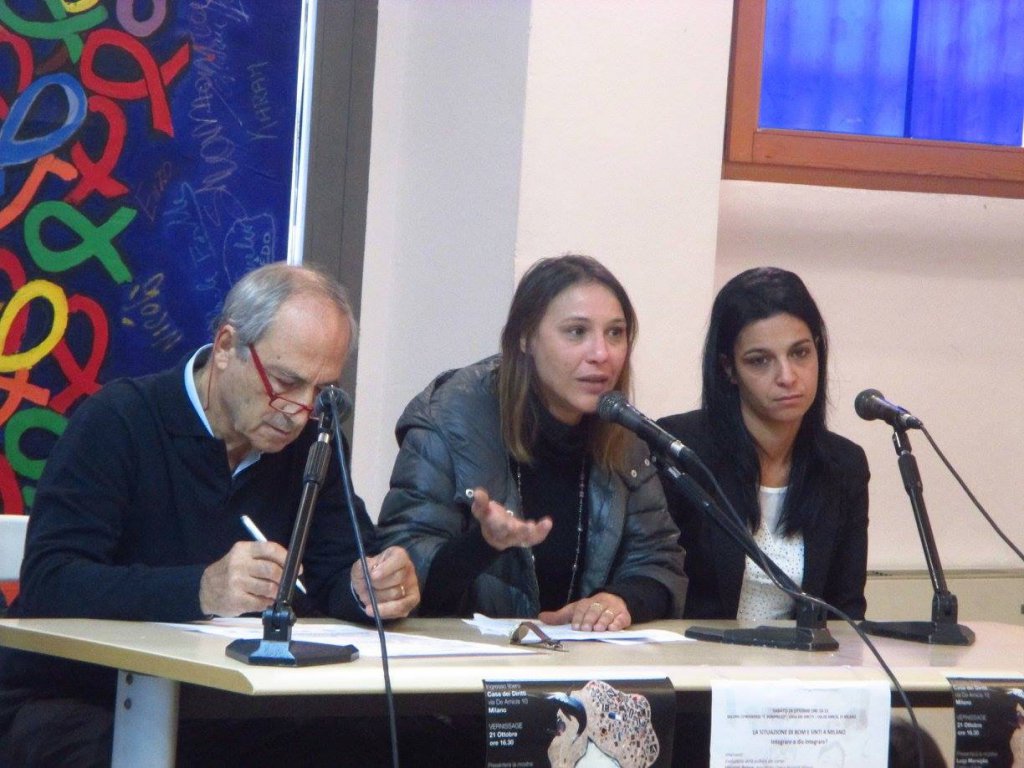Italian human rights activist beaten “because his wife is the Gypsy that goes on TV”
09 November 2016
In a Milan neighbourhood on the night of Friday 4th of November, Paolo Cagna Ninchi was physically attacked and verbally abused by an unknown assailant on his way home. The motive behind the attack was “because his wife is the Gypsy that goes on TV” (è la zingara che va in televisione). Paolo will need an operation for the injury to his eardrum, but otherwise is physically recovering from the assault.

Paolo is no stranger to intimidation, he has been a political activist for many years; he is president of the Milan-based NGO Upre Roma, and is a well-known, long-time champion of Roma rights in Italy and Milan. He is also the husband of Dijana Pavlovic, a high-profile Romani activist and deputy president of Federazione Rom e Sinti Insieme. Dijana has long campaigned to defend the rights of Roma in Italy and across Europe and is a regular guest on radio and TV shows.
Dijana has been a regular target of threats and abuse online and off. In March 2015, as a guest on the Italian TV show Piazza pulita, she was racially abused by the late Lega Nord MEP Gianluca Buonanno, who described Roma as “the dregs of society” (la feccia della società).
So Paolo and Dijana are well known in their neighbourhood of viale Ungheria where they live with their seven-year-old son. And viale Ungheria has borne witness to racist attacks and provocations in the past. In April 2013 after protests by far right organisations against a Roma camp located in the district, the municipal authorities eventually evicted the Roma. The authorities chose this cowardly option rather than defend the Roma from the racist abuse and violence of the demonstrators. Between the attacks and the eviction, Dijana and Paolo were in the front line alongside many local NGOs and activists defending the Roma. Often it was necessary to escort Romani women to the supermarket to buy food to ensure their physical security. Many of us activists were subject to threats and did not feel safe in the neighbourhood.
This kind of intimidation is part of a wider phenomenon and European rights bodies have repeatedly drawn attention to the noticeable increase in xenophobia and anti-Gypsyism across Italy. All the reports confirm that despite the ending of the illegal and oppressive ‘Nomad Emergency’, Roma continue to live in conditions of acute marginalisation and discrimination, and are effectively denied access to housing and other social rights.
The ERRC has documented instances of violence against Roma by state and non-state actors in Italy since 1998, and made numerous submissions to Council of Europe and UN bodies, also highlighting the widespread and commonplace use of discriminatory, intolerant, and racist language in political discourse and media outlets in Italy.
The latest ECRI report on Italy in 2016 confirms that Roma remain targets of hate speech and hate crime, continue to live in conditions of acute marginalisation and discrimination, and are effectively denied access to housing and other social rights. While incidents such as Buonanno’s abuse of Dijana on TV gave rise to judicial proceedings, ECRI noted “this has not prevented the continuing use of aggressive and offensive language and even hate speech in political debate on radio and television.”
And the assault on Paolo reminds us of the human cost of state failures to combat hate speech and racism. It is a sad state of affairs that those who stand up against prejudice in their neighbourhood, in their city and in their country, should have to face violent and cowardly attacks. But racists will not succeed to silence people like Paolo and Dijana. The swell of solidarity in the aftermath of this attack shows that the politics of hope not hate must prevail.




